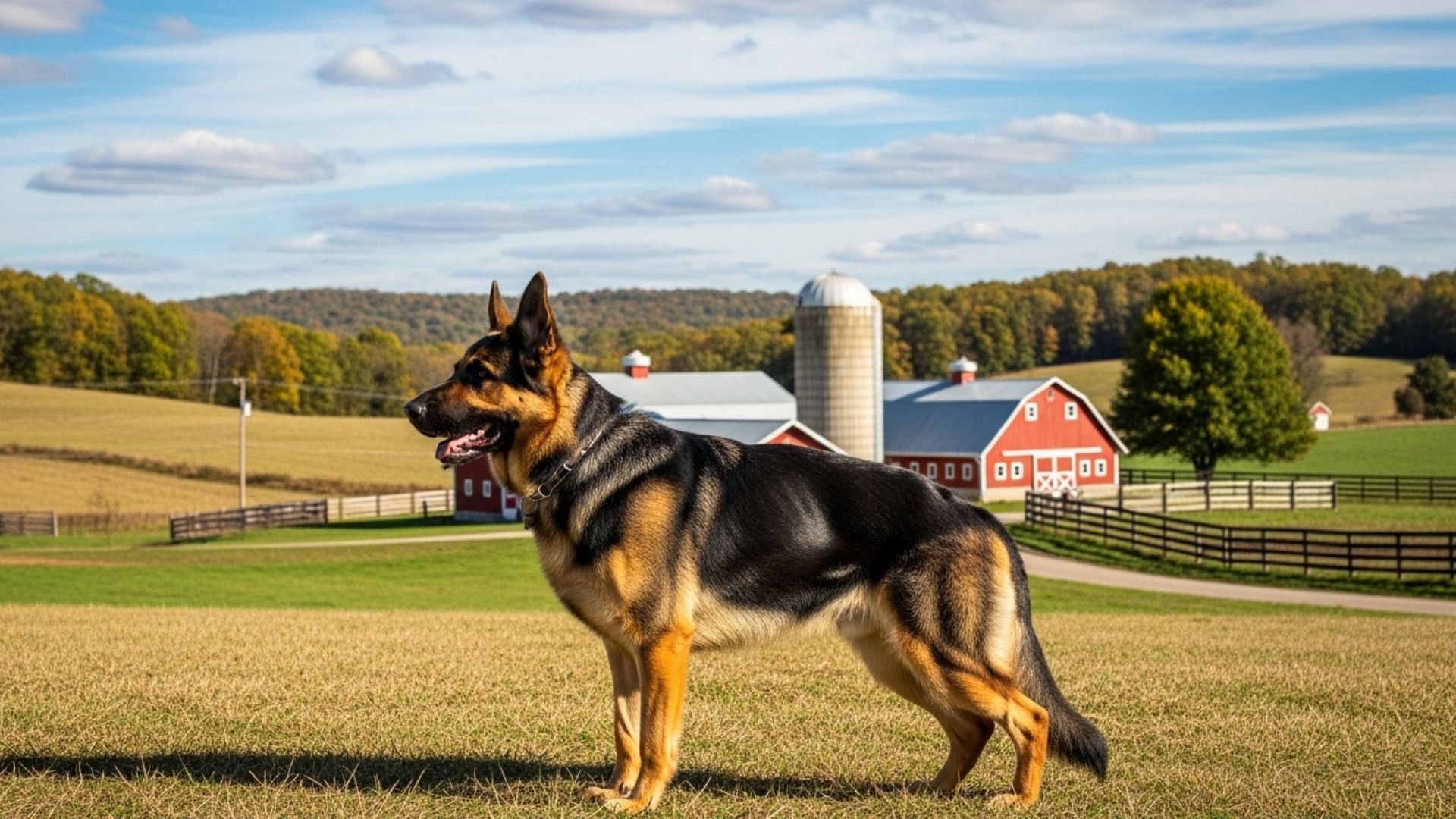Farm security isn’t just about fences and cameras, but it’s about trust and loyalty. That’s the kind of security you can’t buy. The kind that would defend you, put their life on the line for you, the kind that comes on four paws, intense eyes, and a heart that would fight to the end for you.
In rural America, nights are quiet and miles stretch between neighbors, and a strong, fearless guard dog isn’t just ceremonial protection and to deter, but it’s crucial for peace of mind, too. These aren’t your average family pets for a portrait; they’re working dogs, they’re bred for courage and loyalty, but especially for their grit.
In Australia, research was conducted and published by Research Gate, where these wild predators had become a serious problem for their livestock. 65.7% respondents reported that predation had ceased since they got an LGD (Livestock Guardian Dog) breed.
This is because these LSD breeds do not just merely guard and protect, but they also lead. They use their brains and think, they patrol, they protect, like the land belongs to their name.
Here’s a list of the 9 strongest, most dangerous, and bravest guard dog breeds for rural America.
Guard Dog Breeds for Farm in Rural America: Strong and Dangerous
1. Komondor
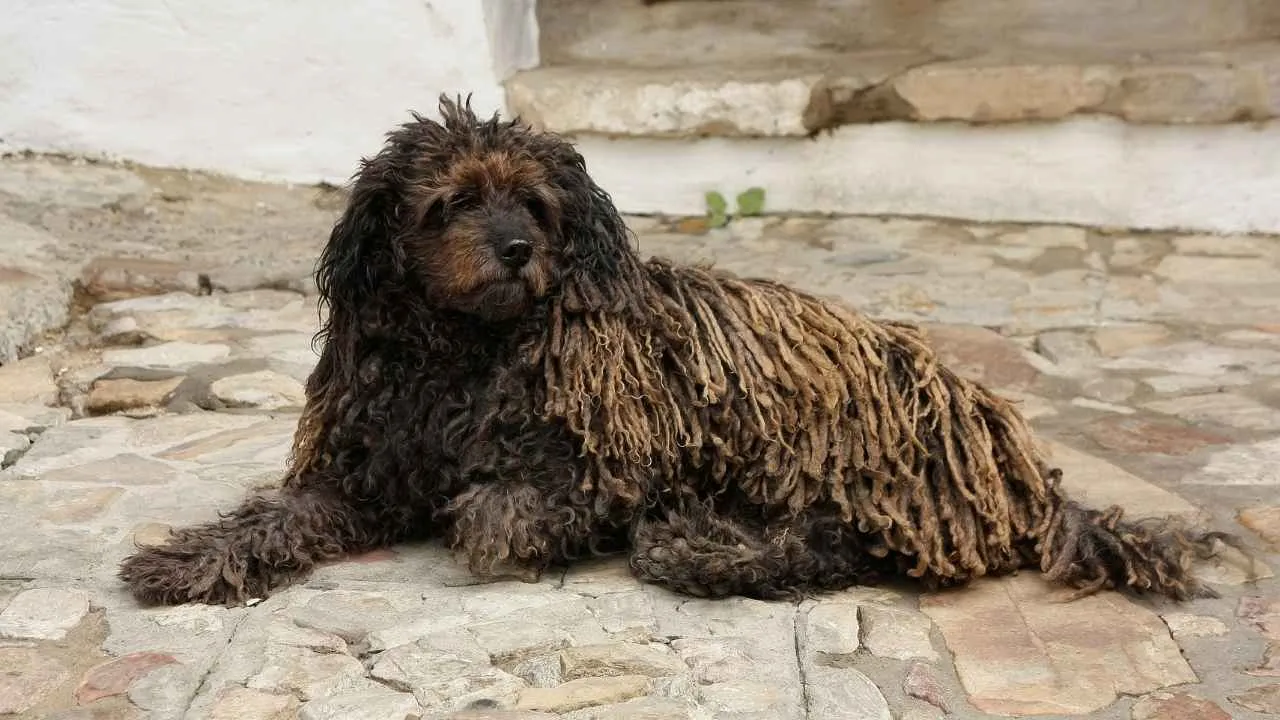
The Komondor is a great livestock guardian dog breed for guarding sheep because of their hair. These double-coated dogs have a naturally thick double coat, the outer coat consisting of long, white dreadlocks that look like a mop.
This gives the dog a sheep-like appearance, enabling them to blend in with the livestock to take out any lurking threat for once and for all. They have really strong protective instincts and form close bonds with their owners and livestock.
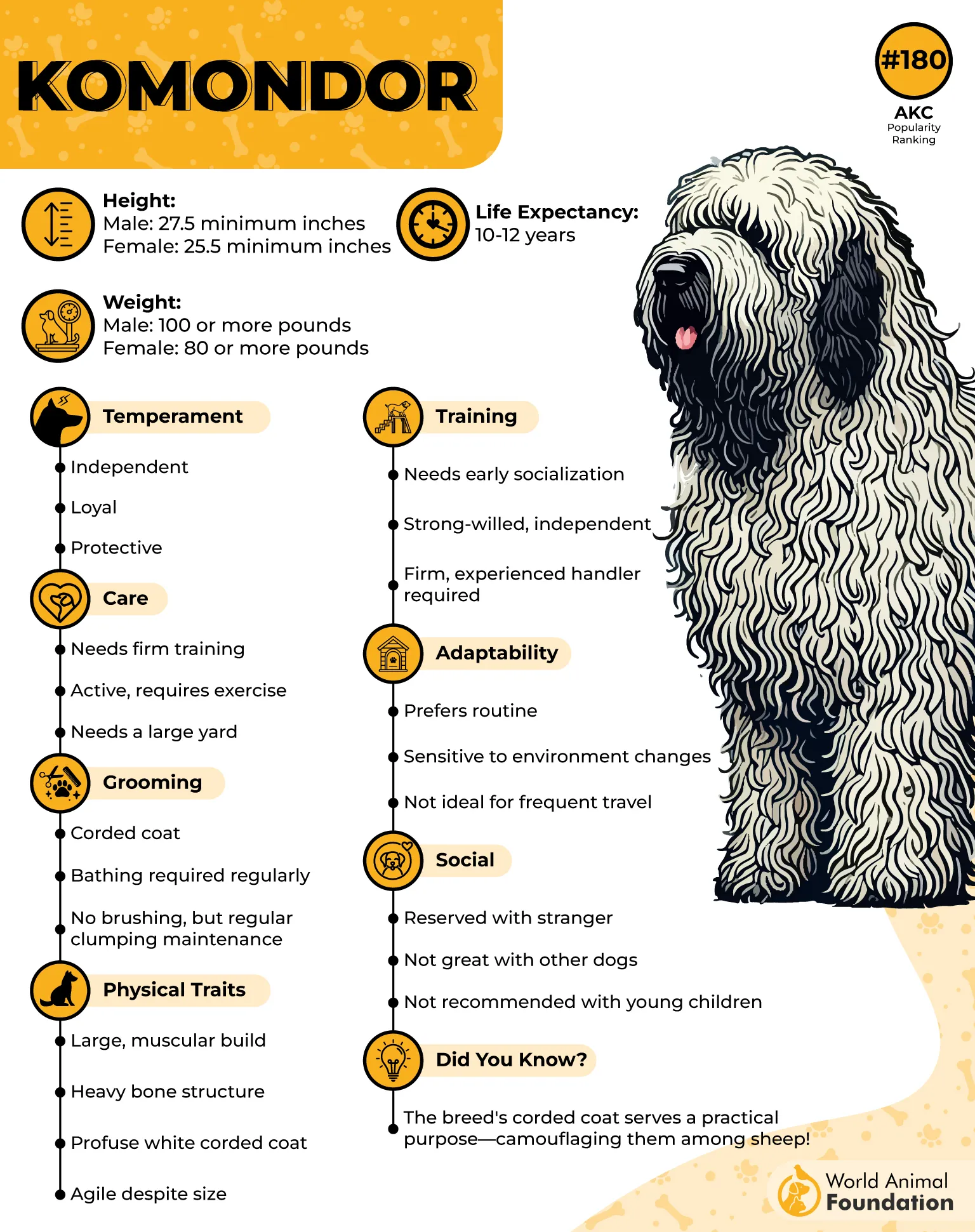
These large dogs tend not to wander away from their flock, making excellent guardians. Their double coat protects them from harsh climates as well.
In addition to being protective, an important trait in livestock guardian breeds is independence. They must be able to think and act independently, which a Komondor is capable of doing. These are independent dogs who need a firm hand in training, according to the AKC.
2. Anatolian Shepherd Dog
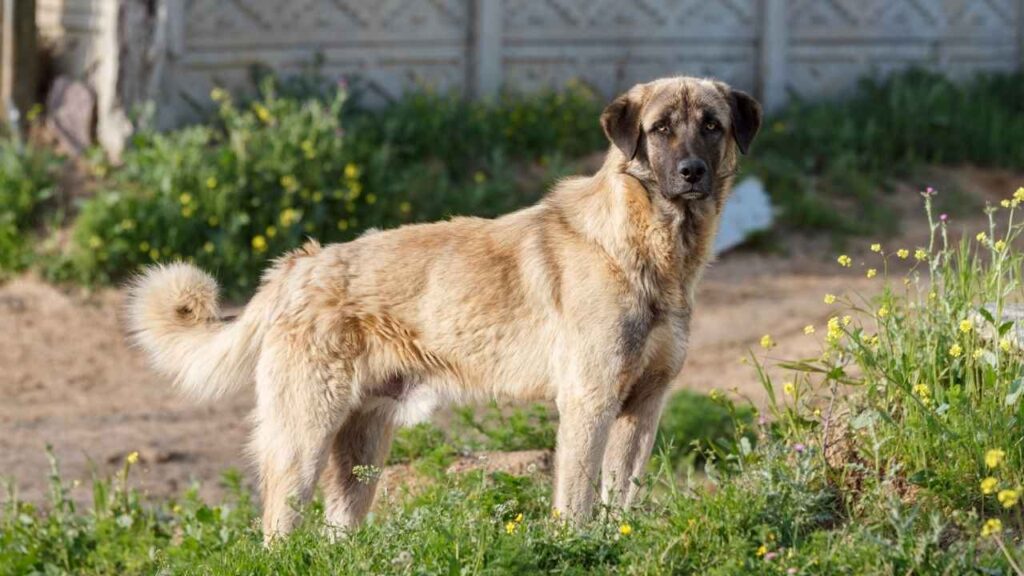
This livestock guardian dog breed originated in Turkey for the protection of livestock such as sheep and goats. The Anatolian is also called the Kangal Shepherd Dog.
This is a calm and protective breed that is fiercely protective of its livestock. Due to their territorial nature, they need early socialization with other animals and people. Otherwise, they tend to get aggressive towards unknowns.
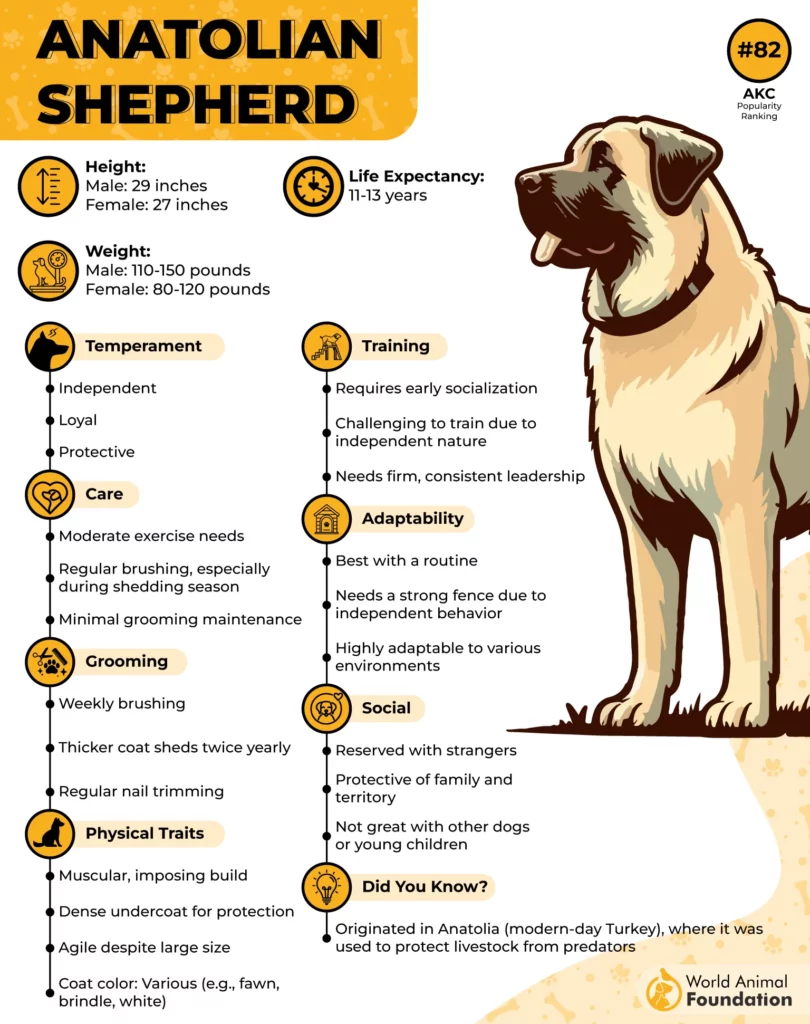
They are territorial but patient and profoundly loyal. AKC reports that they descend from some of the oldest domestic canine bloodlines.
The best part about them is their adaptability; they are incredibly smart and accommodating dogs. They can accommodate various climates due to their thick skins and can live indoors and outdoors, too.
🎧 Dogcast
Episode 12 — If Dogs Could Talk: Why Do Humans Go to the Gym When the Park Exists
If you don’t hear sound, tap the button above to enable audio.
3. Australian Shepherd
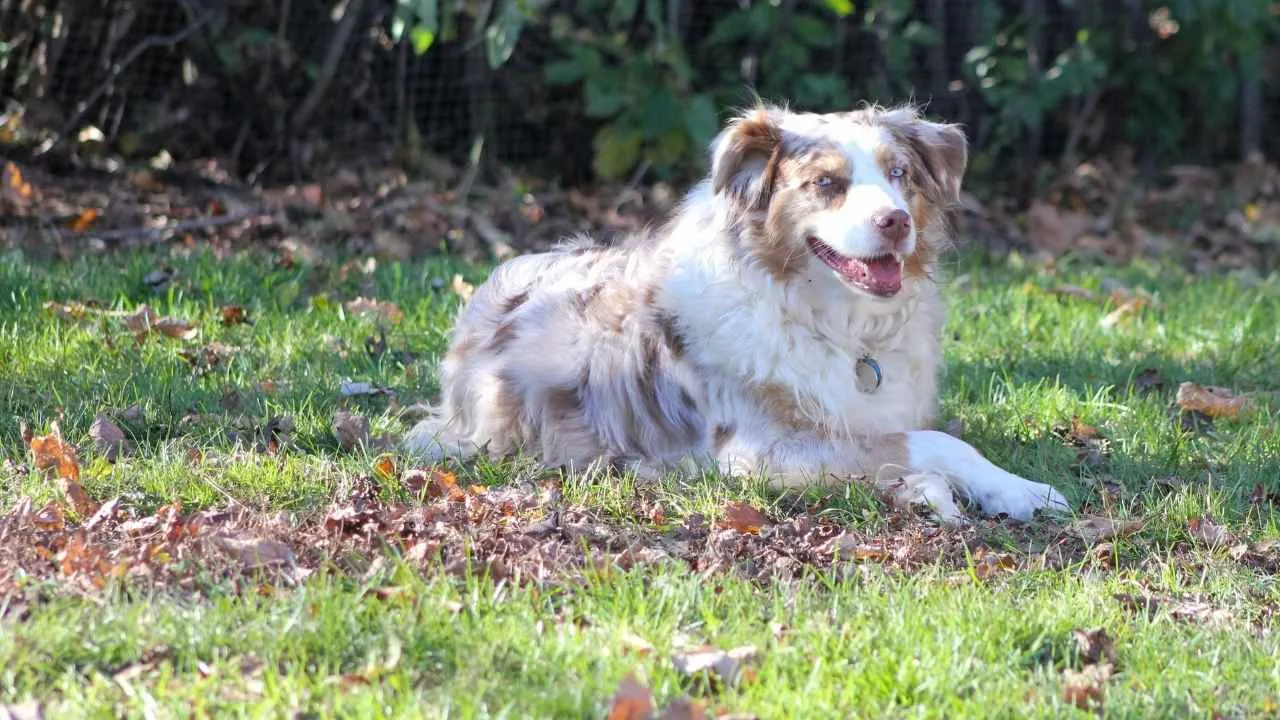
The Aussie was developed, or you can say, perfected in California, actually. These athletic dogs are herding breeds which high levels of energy. So, for a large farm area, they make great farm dogs.
This medium-sized worker with a keen eye and a penetrating gaze is the number one herding dog of choice for a cowboy.
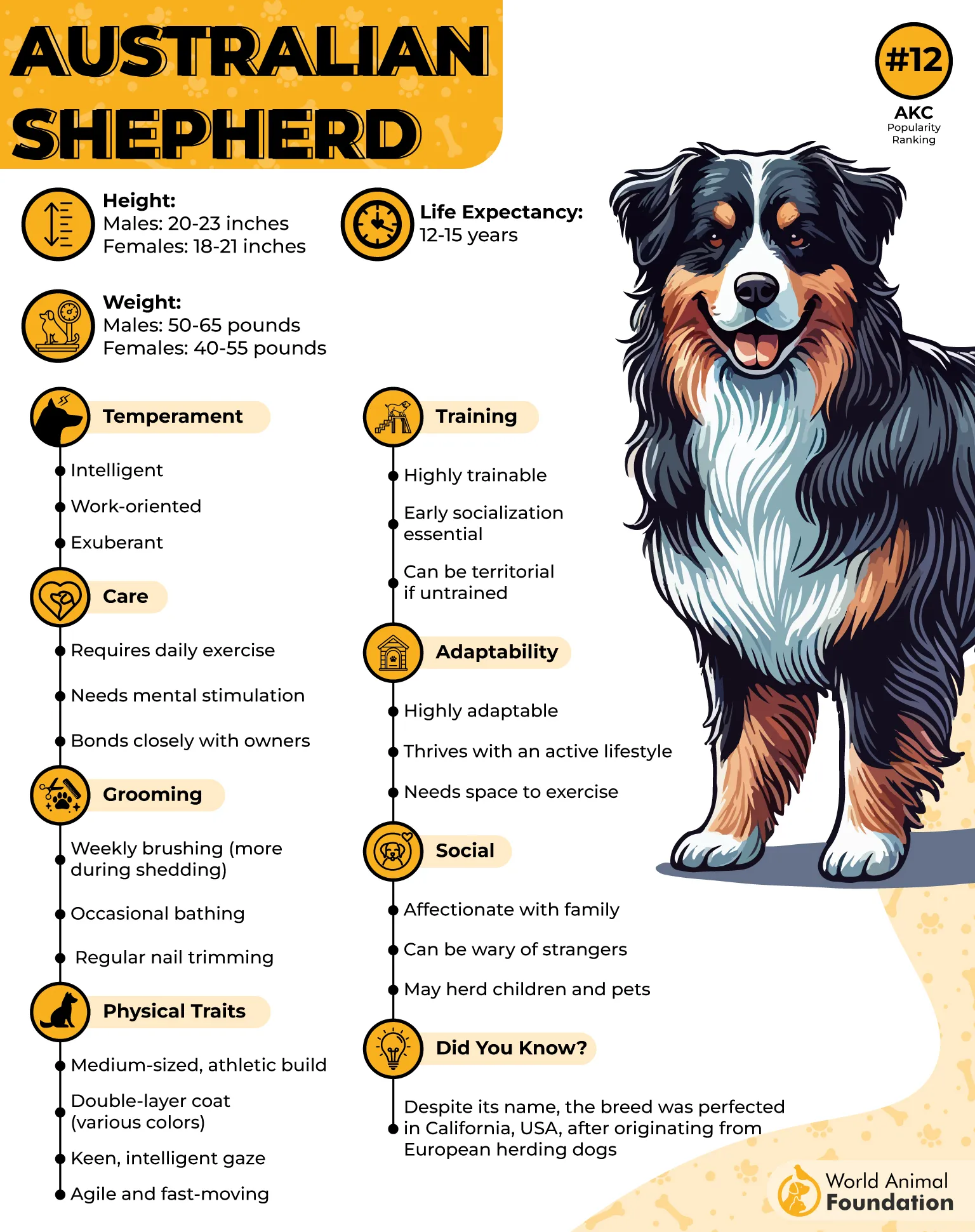
PetMD categorizes them as medium-sized dogs with natural herding instincts and muscular and agile builds. They love to have jobs to do and can take some time to warm up to strangers, which, let’s admit, is a welcome trait in a livestock guardian dog.
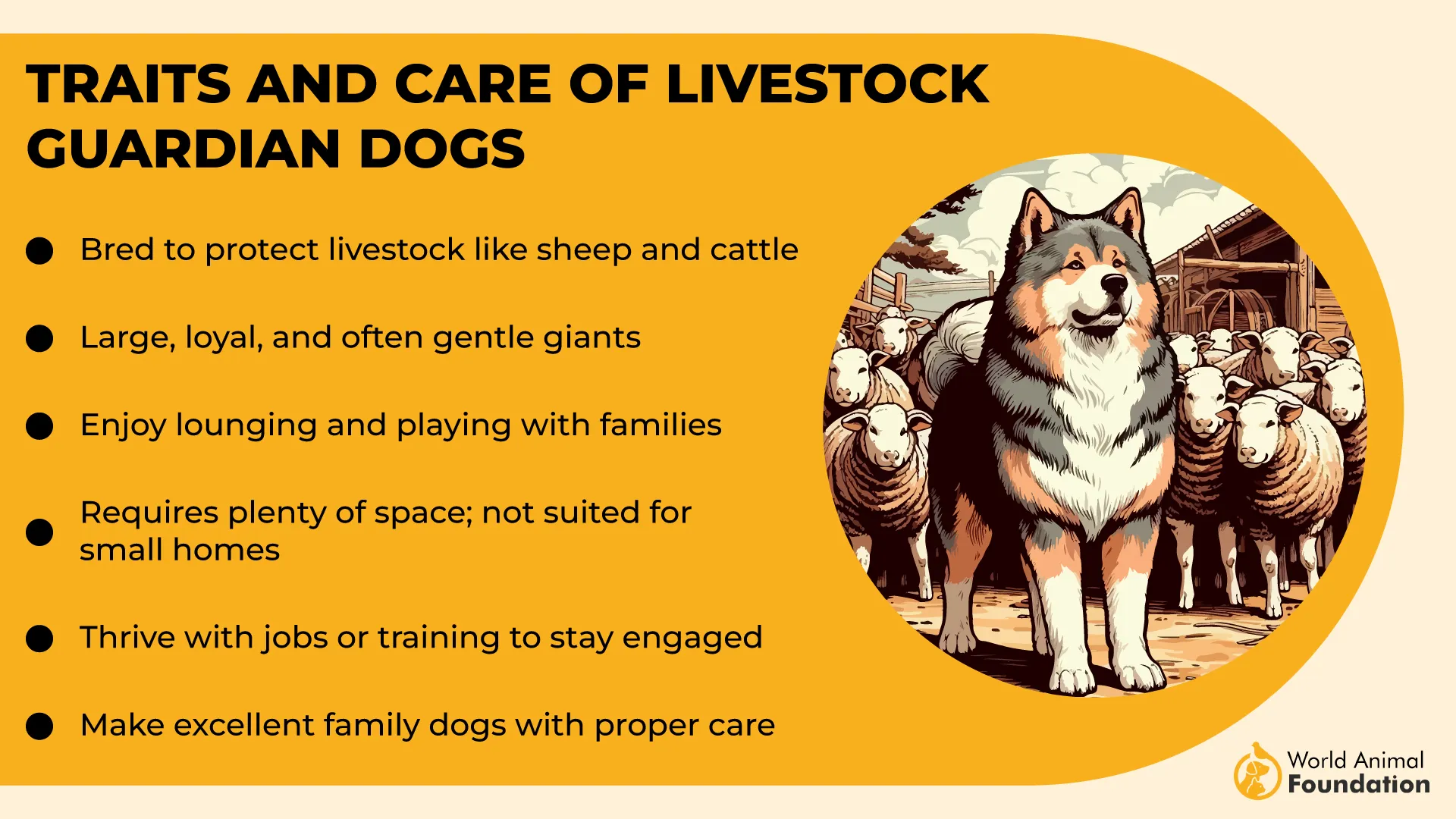
The male Australian Shepherd dogs are generally larger than the females. They also make great family dogs due to their loving and agreeable nature towards their own.
4. Great Pyrenees
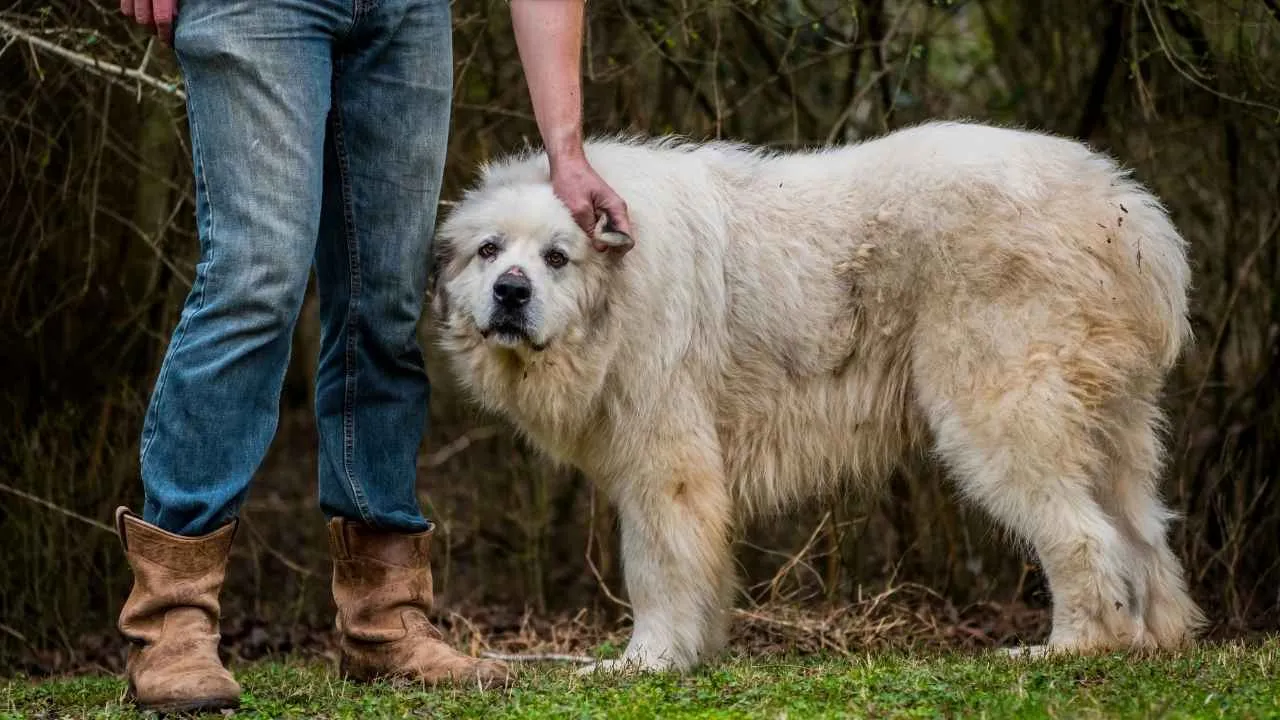
As the name suggests, the Great Pyrenees is a large dog, originating in the Pyrenees mountains of Europe, which form the border between France and Spain.
The Great Pyrenees Club of America reports that they were developed by the people of the Basque to protect livestock from wild bears and wolves. The breed has been used for this purpose for thousands of years, only perfecting their techniques and quite literally being made for this.
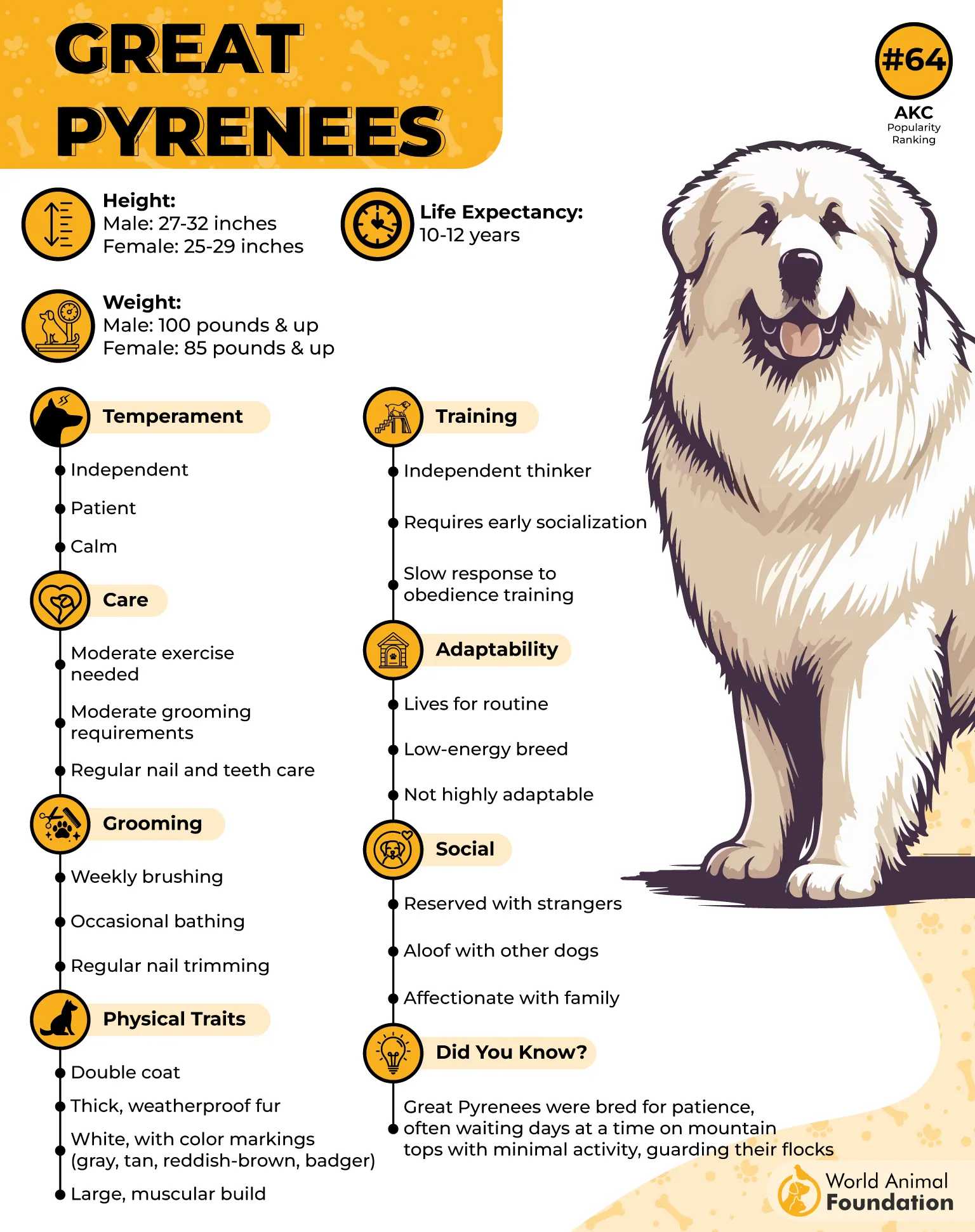
Historically, the breed has been used in France to guard estates, too. They have a territorial nature, which means they want their territory free from unfamiliar presence and predatory danger.
You can either appoint them as an all-purpose Ranch or Farm dog, where they spend all their time on the farm, but at close proximity to the home, and making wonderful family pets too, alongside being herding dogs. Or they can be a livestock guardian dog only; this dog isn’t a pet and isn’t allowed access inside the house.
5. Bergamasco Sheepdog
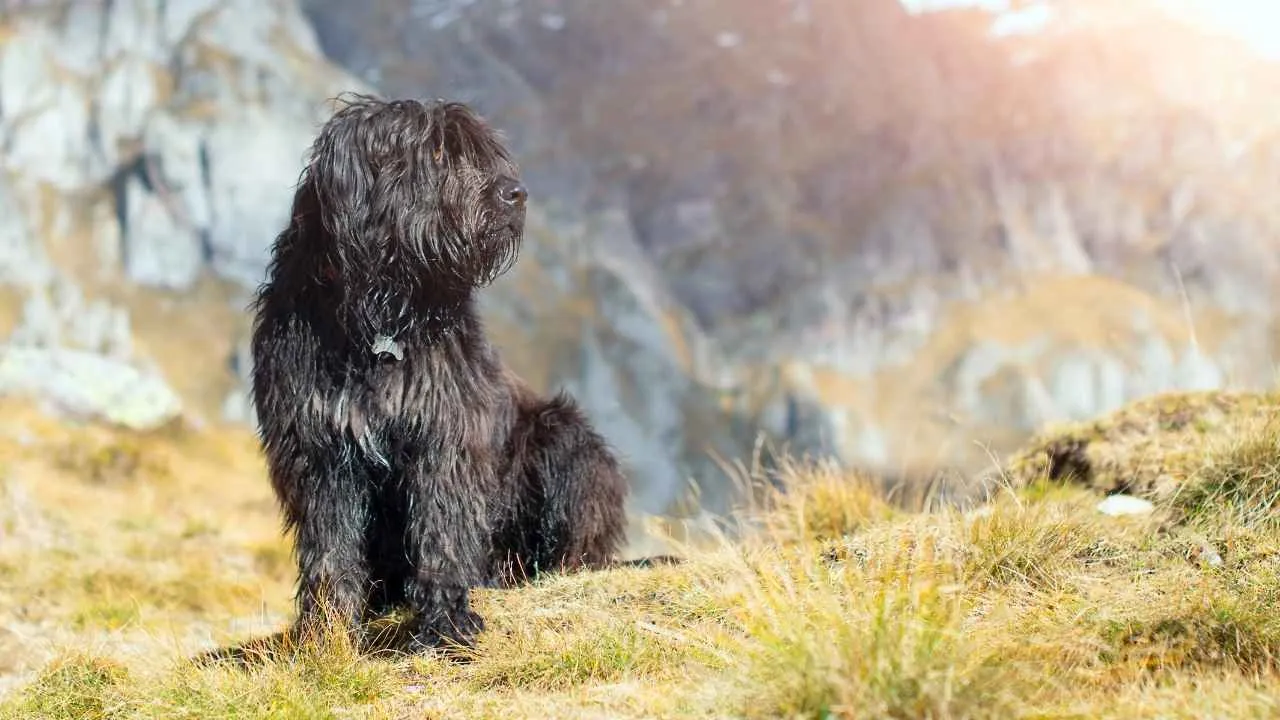
An Italian breed of sheepdog, originating from the Alpi e Prealpi Bergamasche, where it was used as a herding dog for sheep and cattle.
The Bergamasco Sheepdog can be identified by their unique, matted flocks that look like dreadlocks. They can live in cold mountains due to their thick coats, surviving cold temperatures in the mountains.
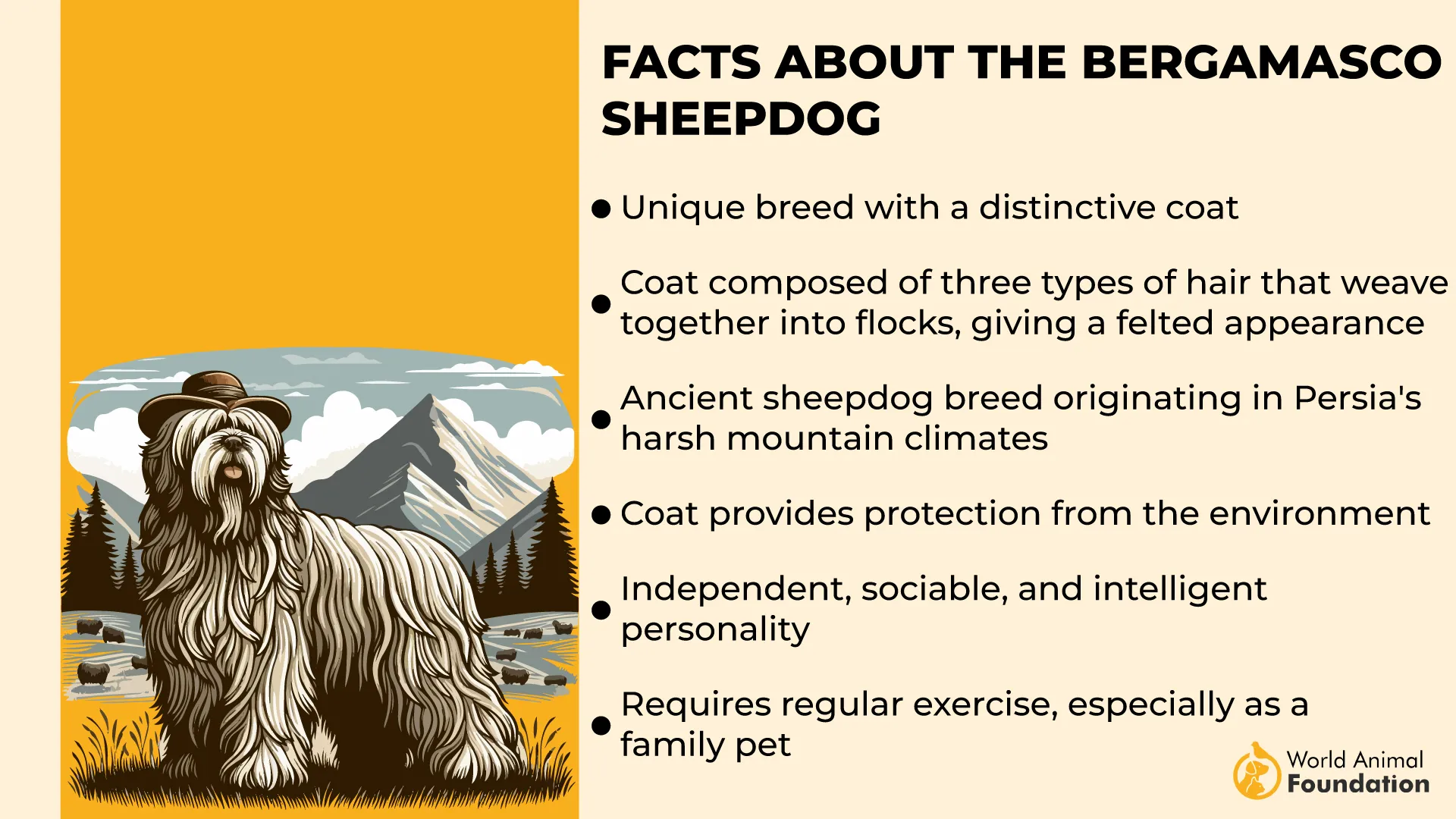
Purina reports this dog needs an experienced owner, as there is extra training required. They have a natural aptitude for working alongside shepherds in harsh climates, too.
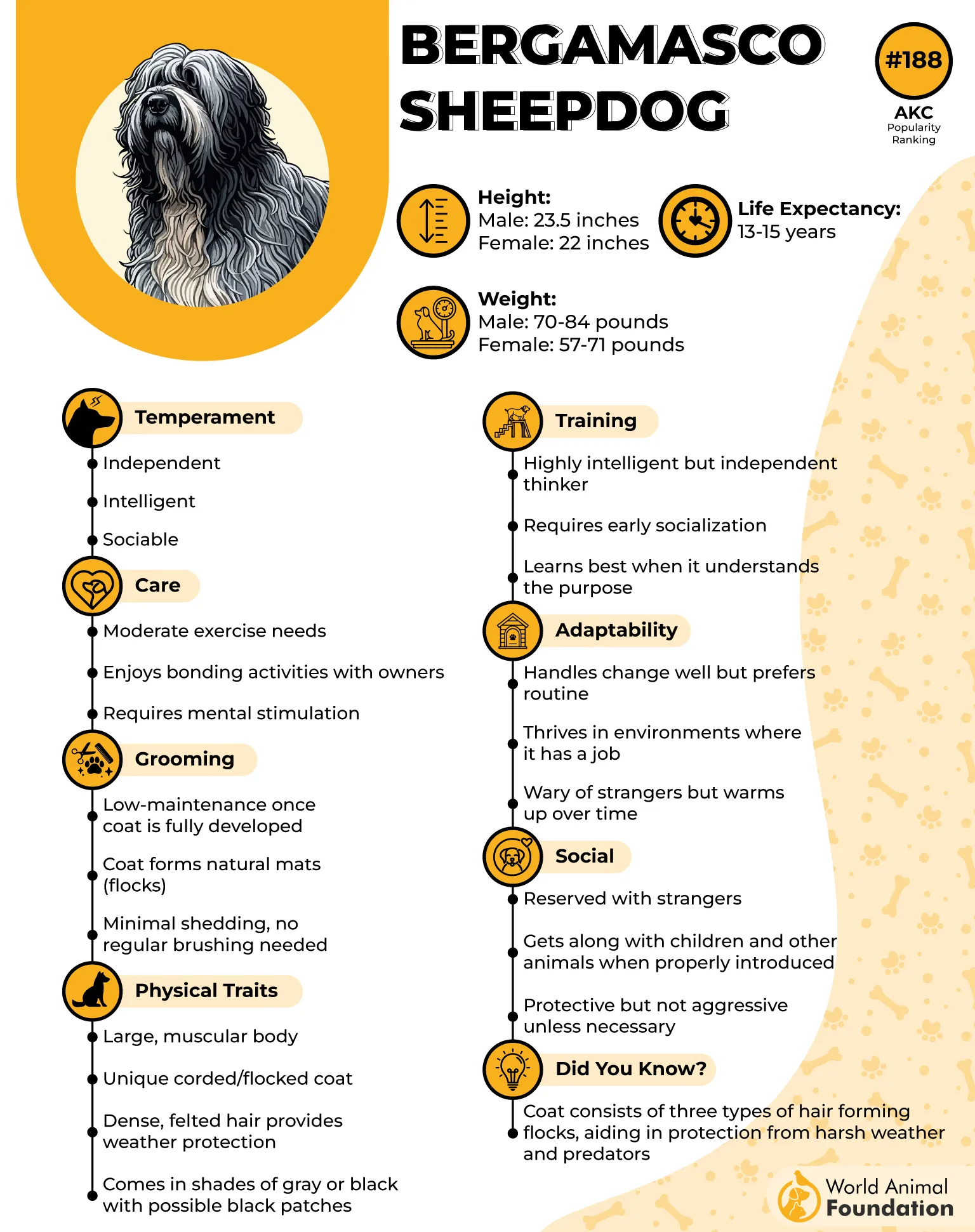
They are capable of driving as well a guarding flocks, as they are extremely intelligent dogs. They work independently and don’t require constant attention.
6. Cane Corso
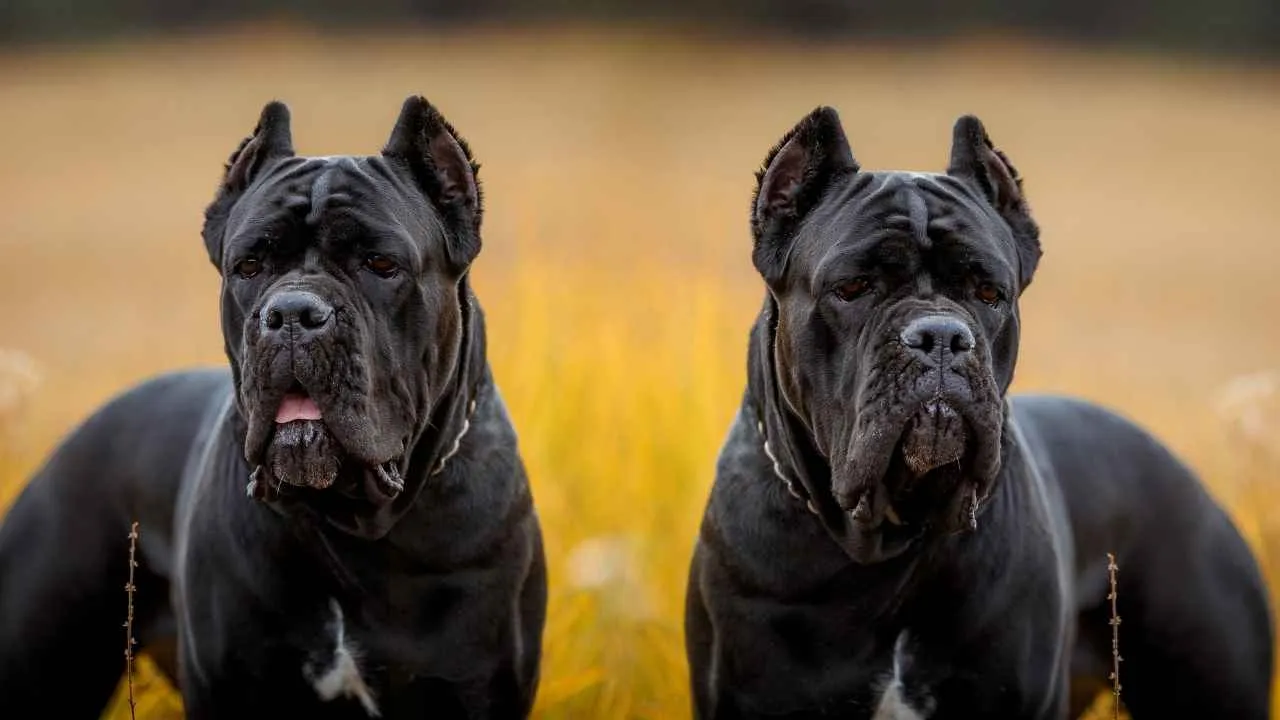
PDSA says that the Cane Corso has a history of being used as a herding dog or a working breed in general, so they expect work and to fulfil tasks.
Having a Cane Corso, you will need to keep them active and busy. They’re used to working with their owners and enjoy time spent with family, being excellent family dogs as well. They protect sheep, cattle, and other animals, being responsible livestock guardians.
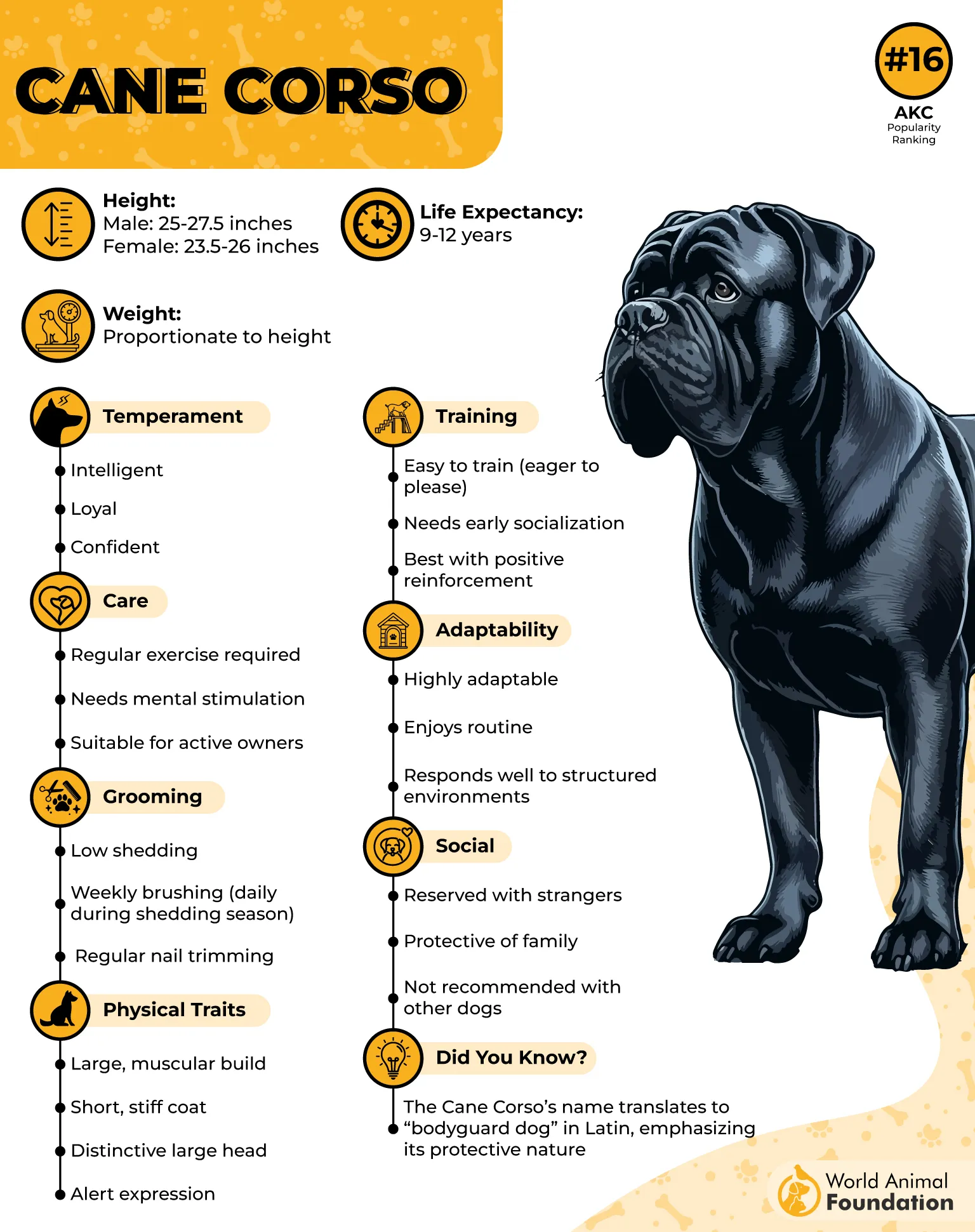
They do have barking tendencies, which come embedded in any guardian breed’s DNA, but with proper training and a gentle and affectionate relationship established with them, they can prove to be gentle giants.
They are loyal, affectionate, and eager to please, but they are also wilful dogs. Potential threats with a Cane Corso can only arise if you do not have a strong hold on them and are easily recognizable as the lead, and they end up taking the reins.
7. Great Dane
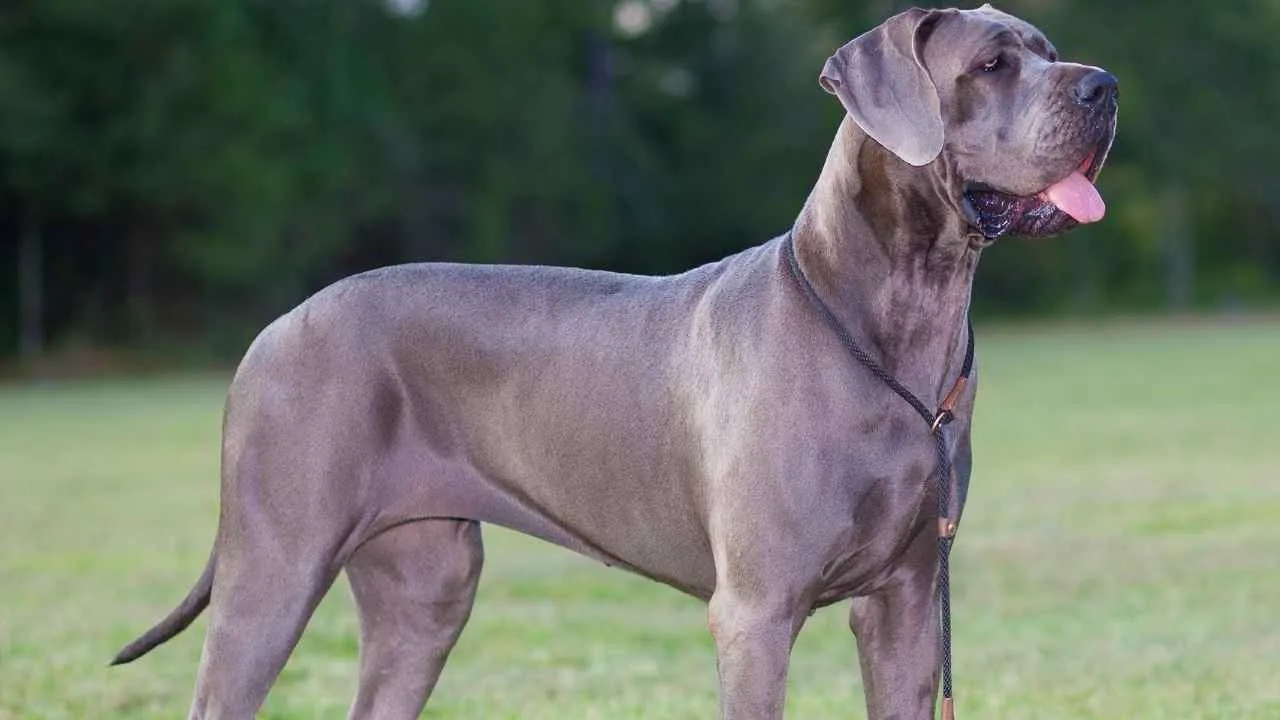
Great Danes are very intelligent breeds that are always eager to learn new things. So, it is a good choice to get for a family who has experience dealing with the breed and dogs in general.
Their size is intimidating; it is not necessary for them to use their bite force or attack, but their imposing size can be enough to make anyone afraid, wild bears, wolves, and other predators.
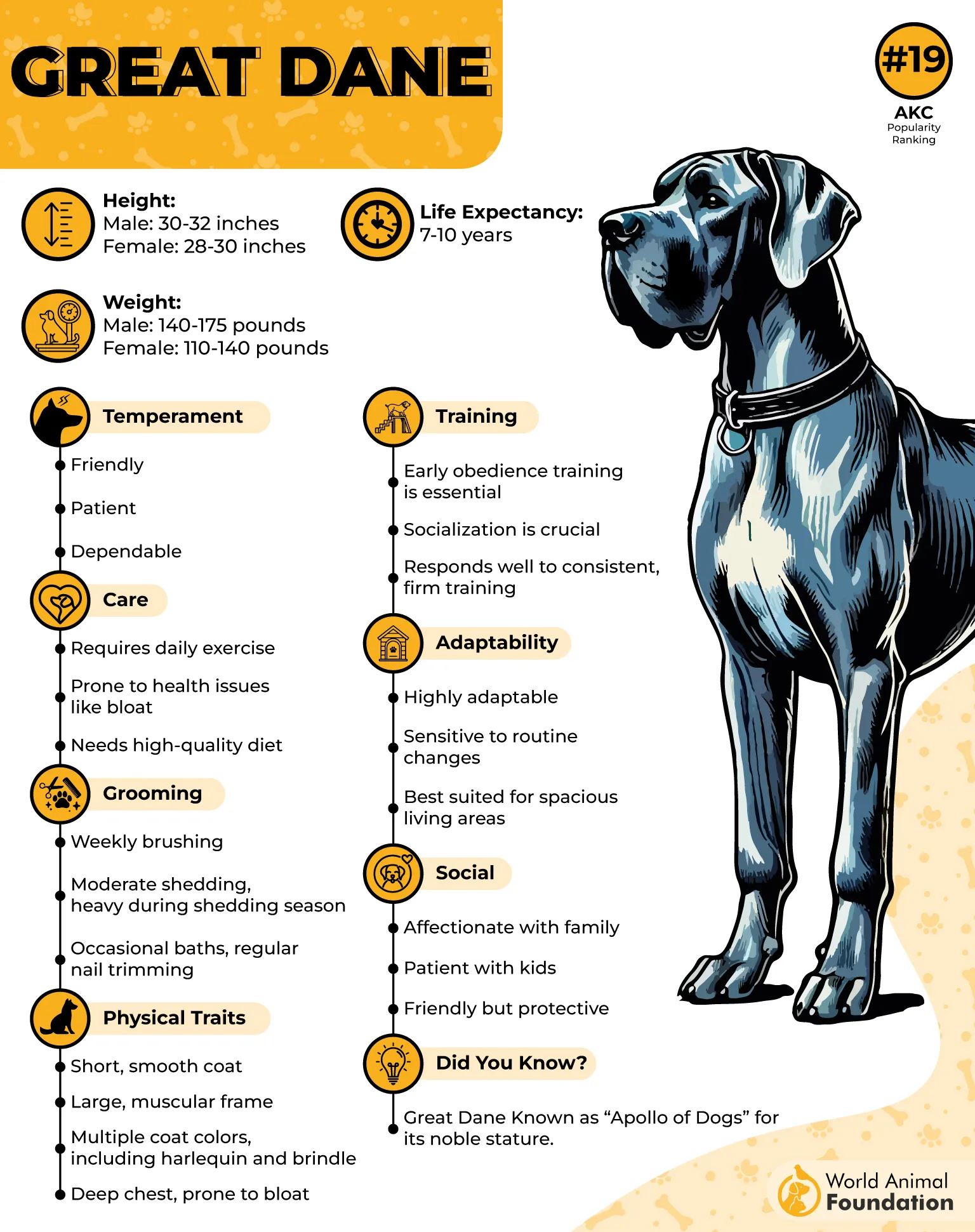
One of the lesser-known qualities of a Great Dane is their gentle and affectionate nature with family. They are really effective guardians, loyal and committed to the goal at large.
They may, however, not be ideal to let inside the house of families with little kids, due to their size. They are active and playful, so farm duty really suits them as they need extensive training.
8. Maremma Sheepdog
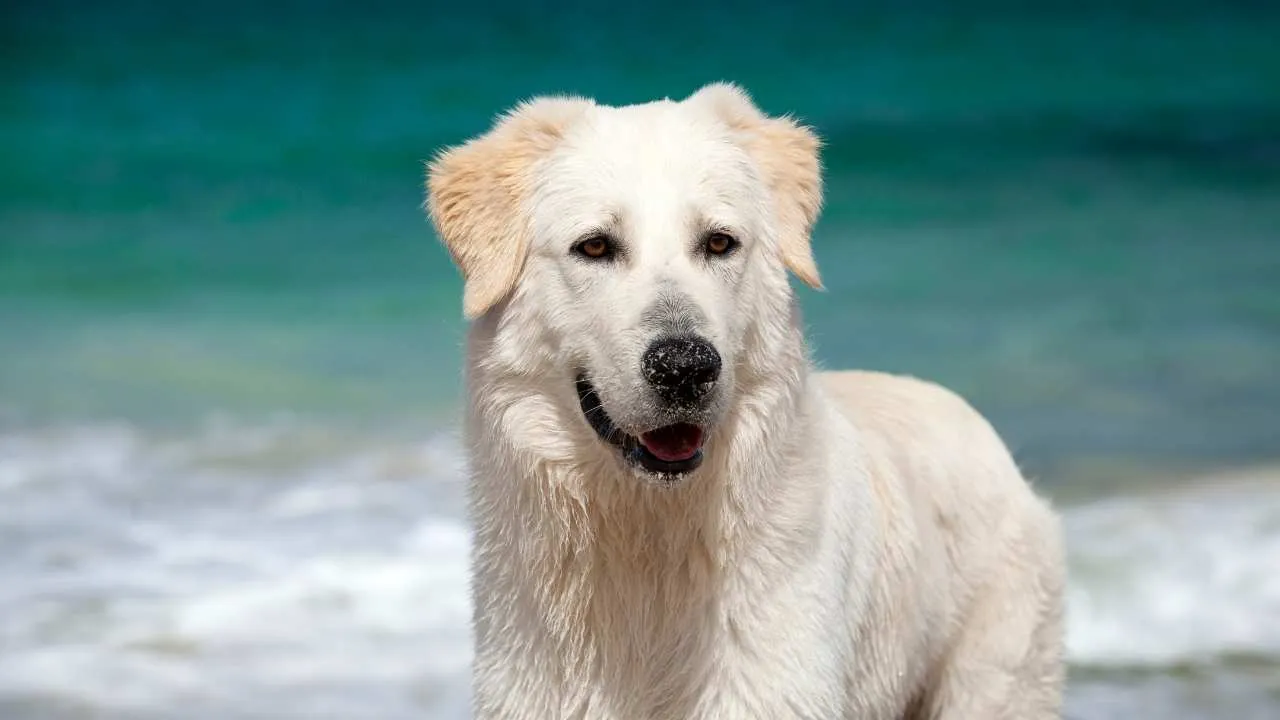
The Maremma Sheepdog was originally bred in Italy to protect livestock. But with proper, early training and socialization, they can also make great family dogs and form strong bonds with the family, too.
These fluffy, white giants are born with protective instincts, and they are now, despite their rich history, gaining popularity as a livestock guardian breed worldwide.
With prior training, they become attached to their herd and devoted to protecting them. They generally have a calm demeanor, but if they’re left alone for too long, they can turn aloof and independent very quickly.
It is pivotal for them to remain attached and in contact with their owner. Their thick double coat, as reported by Hill’s Pet, protects them from difficult weather conditions as well.
9. Belgian Malinois
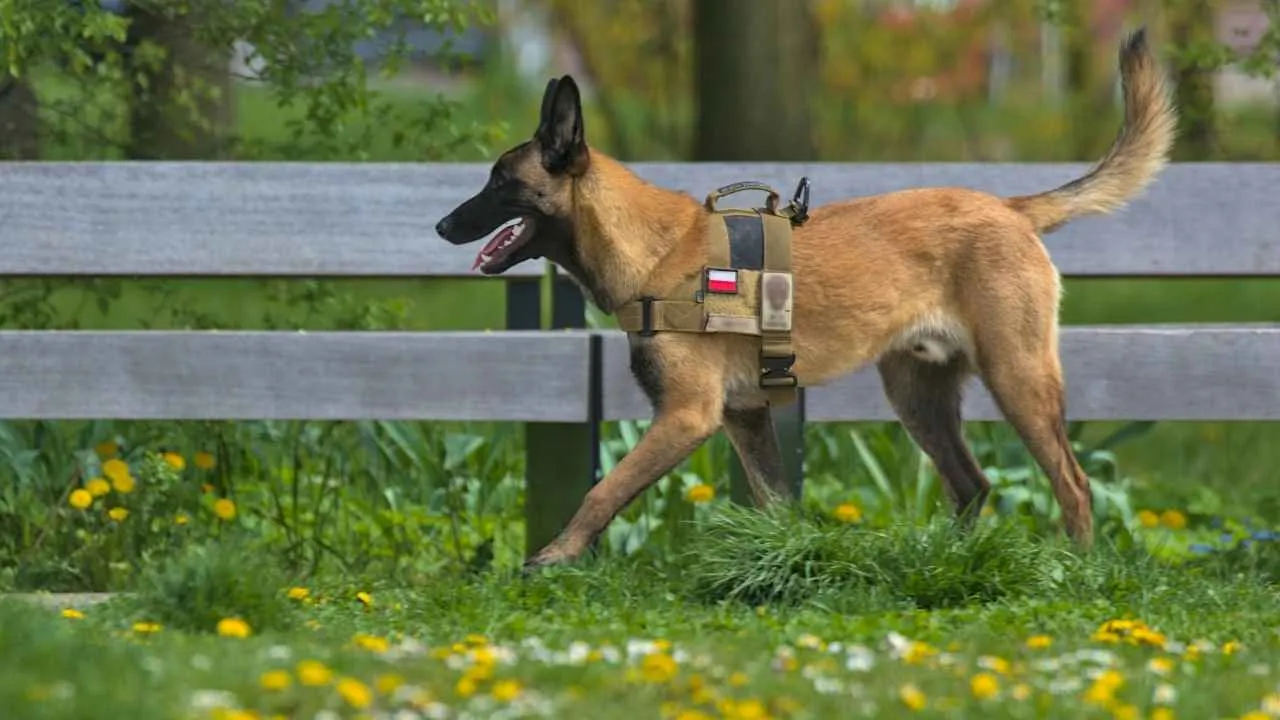
There are myriad ways the Belgian Malinois can help you with your farm. First and foremost if the benefit of having a dog on your farm is to assist you in herding the livestock. Cattle, sheep, goat, poultry, you name it.
This dog can move them from one place to another without detaching from the other livestock or losing its way. Their exceptional sense of smell makes them great for pest-detection as well, making sure you’re aware of the damage before it is done
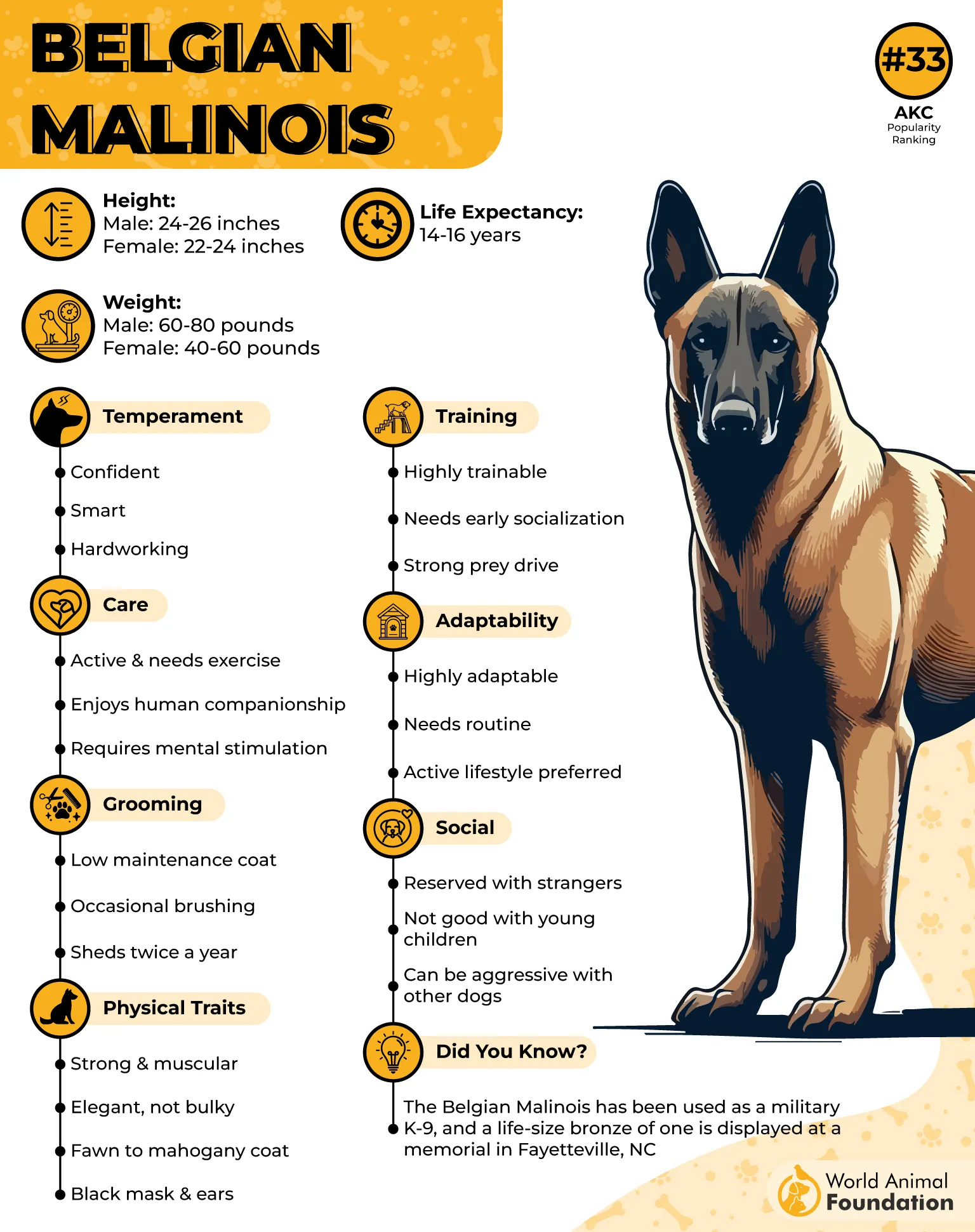
Farming can be a demanding and daunting task; it is always wholesome to have a companion and someone to provide emotional support.
These smart, confident, and hardworking dogs understand the effort like no one else. The American Kennel Club (AKC) describes them as world-class workers forming unbreakable bonds with their humans.
Conclusion
Getting a farm dog is an important decision and one you need to put a lot of thought into before making. Unlike different animals and other dogs, a farm dog also contributes to your business, your bread and butter.
It’s like a business partner, of sorts. It goes beyond loyalty with them, it’s companionship, a work ethic you can respect, and a sense of devotion to the flock and livestock they are expected to protect.
Like any major decision, this one also comes with its risks, but the benefits pay much more. Emotionally, mentally, and especially physically.


